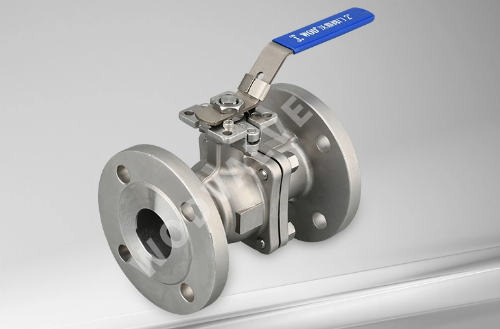Cast steel gate valves offer several advantages that make them suitable for various applications in industries such as oil and gas, petrochemical, and power generation.
Some of the key advantages of using cast steel gate valves include:
- Excellent Flow Control: Cast steel gate valves provide precise control of fluid flow. They can be partially or fully opened, allowing for a range of flow rates and adjustments.
- High Temperature and Pressure Resistance: Cast steel gate valves are designed to withstand high temperatures and pressures, making them suitable for applications in demanding environments, including steam systems and high-pressure pipelines.
- Durable Construction: They are constructed with robust materials, such as cast steel, which enhances their durability and resistance to corrosion, erosion, and wear.
- Bi-Directional Flow: Cast steel gate valves are designed for bi-directional flow, allowing them to operate effectively in both directions, preventing backflow.
- Tight Sealing: These valves provide a tight and secure seal when fully closed, preventing leakage and ensuring system integrity.
- Low Pressure Drop: Cast steel gate valves offer minimal pressure drop when fully open, allowing for efficient flow through the pipeline or system.
- Versatility: They are suitable for a wide range of applications, including isolating and regulating flow in various fluids, such as water, oil, gas, and chemicals.
- Easy Maintenance: Maintenance and repair of cast steel gate valves are relatively straightforward, and replacement parts are readily available, which helps extend the valve’s service life.
- High Reliability: When properly maintained, cast steel gate valve cast steel gate valves offer high reliability and can provide long service life, contributing to the efficiency and safety of fluid systems.
- Compliance with Standards: Many cast steel gate valves are designed and manufactured to comply with industry standards and regulations, ensuring their quality and safety.
- Optional Features: Cast steel gate valves often come with optional features, such as extended bonnets for low-temperature applications, gear operators for manual operation, and actuators for remote control.
- Good Shutoff Capabilities: They provide an excellent seal when closed, effectively isolating sections of the pipeline and preventing the passage of fluids.
- Various Sizes and End Connections: Cast steel gate valves are available in a range of sizes and end connections, making them suitable for different pipe diameters and installation requirements.
It’s important to consider the specific application, temperature, pressure, and fluid properties when selecting a cast steel gate valve to ensure it meets the requirements of the system. Proper installation and maintenance are also essential to maximize the benefits of these valves in fluid control applications.
What materials are commonly used in the construction of cast steel gate valves?
Cast steel gate valves are constructed using a variety of materials, with the choice of material primarily influenced by the specific application’s requirements, including factors like temperature, pressure, and the nature of the fluid being controlled.
Common materials used in the construction of cast steel gate valves include:
- Carbon Steel (WCB): Carbon steel is the most widely used material for cast steel gate valves. It offers good strength, corrosion resistance, and durability. WCB is suitable for applications with moderate temperatures and pressures.
- Low Alloy Steel (WC6, WC9): Low alloy steel provides enhanced corrosion resistance and high-temperature capabilities compared to carbon steel. WC6 and WC9 are often used for gate valves in applications involving steam and higher pressure.
- Stainless Steel (CF8, CF8M, CF3, CF3M): Stainless steel gate valves, such as CF8 (304 stainless steel) and CF8M (316 stainless steel), are chosen for their excellent corrosion resistance. They are well-suited for applications where contact with aggressive or corrosive fluids is a concern.
- Duplex Stainless Steel (CD3MN, CD3MWCuN): Duplex stainless steel gate valves offer a combination of high strength, corrosion resistance, and resistance to stress corrosion cracking. They are used in demanding applications with aggressive environments.
- Alloy Steel: Various alloy steel grades are used in cast steel gate valves, such as F11, F22, and F91, for applications that require high-temperature and high-pressure resistance.
- Nickel Alloys: Certain nickel-based alloys, like Monel, Inconel, and Hastelloy, are employed in applications where exceptional corrosion resistance, particularly against aggressive chemicals, is essential.
- Specialty Alloys: Some gate valves are made from specialty alloys to meet specific application requirements, such as resistance to extreme temperatures or highly corrosive environments.
The choice of material depends on the fluid being controlled, the operating conditions, and the environmental factors. It’s crucial to select the appropriate material that can withstand the specific challenges posed by the application to ensure the gate valve’s performance, longevity, and safety. Additionally, gate valve manufacturers provide material specifications and compatibility charts to help users make informed decisions when selecting the right material for their cast steel gate valves.
